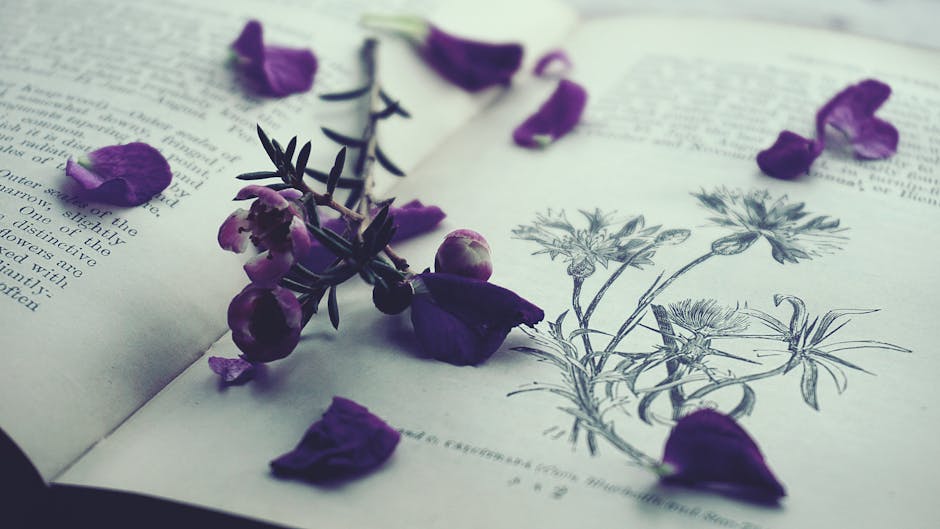Timeless Literary Genres: Exploring the Heart of Storytelling
On Litivo, where we let stories evolve with you, understanding the core of what makes stories resonate across generations is essential. At the heart of every unforgettable narrative lies a literary genre—a framework that shapes not just the story, but the way we experience it. The focus keyword for this article is literary genres, and from the very beginning, we’ll explore how literary genres have defined, enriched, and evolved the art of storytelling throughout history.
The Origins and Evolution of Literary Genres

Photo by Anna Shvets on Pexels
From the earliest days of oral tradition to the digital narratives of today, literary genres have served as the foundation for storytelling. Ancient civilizations classified tales into categories like epic, tragedy, and comedy, each with its own conventions and societal functions. The Greeks, for example, formalized genres to distinguish between stories meant to entertain, educate, or provoke thought. Over centuries, these boundaries blurred, merged, and expanded as writers experimented and societies changed.
During the Renaissance, genres like romance and satire gained prominence, reflecting shifting cultural values. The printing press revolutionized access to literature, allowing genres to proliferate and diversify. The 19th and 20th centuries saw the rise of new forms—science fiction, detective stories, and fantasy—each responding to technological progress, social upheaval, and readers’ evolving tastes.
Today, the digital age enables genres to cross-pollinate and adapt rapidly. Online platforms and global communities foster hybrid genres, fan fiction, and interactive storytelling, highlighting how genres are living, breathing entities that evolve alongside us. Literary genres are not static; they are the ever-adapting vessels for human imagination and experience.
Why Literary Genres Matter: The Power of Categorization

Photo by cottonbro studio on Pexels
Why do literary genres matter so much? Genres act as a roadmap for both writers and readers. For writers, understanding genre conventions provides structure and creative direction, helping them meet or subvert audience expectations. For readers, genres offer a shortcut to discovering stories that align with their interests, moods, and values.
Genres also facilitate cultural conversations. When a new genre emerges or an existing one evolves, it often signals broader societal shifts. For instance, the popularity of dystopian fiction often mirrors times of political unrest or uncertainty. Romance and mystery genres offer comfort and escapism, while literary fiction challenges norms and explores the human condition in depth.
Moreover, genres encourage innovation. Writers who blend elements from multiple genres can create entirely new reading experiences, as seen in the rise of magical realism or speculative fiction. This interplay keeps literature dynamic and relevant, ensuring that stories continue to evolve with us.
Major Literary Genres and Their Enduring Appeal

Photo by Mikhail Nilov on Pexels
Let’s take a closer look at some of the major literary genres that have stood the test of time:
- Fiction: Encompassing everything from the classic novel to flash fiction, this genre allows for limitless creativity. Subgenres include literary, historical, science fiction, fantasy, and more.
- Nonfiction: Grounded in reality, nonfiction covers memoirs, biographies, essays, and journalism, offering insight into real-world events and experiences.
- Poetry: With its emphasis on language, rhythm, and imagery, poetry distills emotion and meaning into compact forms, from sonnets to free verse.
- Drama: Written to be performed, drama explores conflict and character through dialogue and action, ranging from ancient Greek tragedies to modern plays.
- Fantasy: By creating worlds beyond our own, fantasy invites readers to explore the limits of imagination and possibility.
- Mystery and Thriller: These genres captivate with suspense, puzzles, and high-stakes narratives, keeping readers on the edge of their seats.
- Romance: Centered on relationships and emotional journeys, romance celebrates love in its many forms.
- Science Fiction: Exploring the impact of technology, space, and the unknown, science fiction challenges us to envision alternative realities and futures.
Each genre persists because it fulfills a fundamental human need—whether it’s to escape, reflect, connect, or question. Their enduring appeal lies in their adaptability and their ability to mirror the complexities of life.
Hybrid Genres: Where Boundaries Blur

Photo by Ylanite Koppens on Pexels
The 21st century has seen an explosion of literary genres that defy easy categorization. Hybrid genres—such as historical fantasy, science fiction romance, or literary mystery—combine elements from multiple traditions to create something entirely new. This blending reflects the diversity and fluidity of modern identity and culture.
Hybrid genres allow writers to subvert expectations and readers to discover stories that resonate on multiple levels. For example, the popularity of dystopian young adult fiction (think “The Hunger Games”) merges coming-of-age themes with speculative world-building, appealing to both teens and adults. Similarly, the rise of magical realism in Latin American literature brought together folkloric elements with social critique, resulting in works that are both enchanting and profound.
Digital storytelling platforms have accelerated this trend, enabling writers to experiment with form, voice, and structure. Interactive fiction, multimedia narratives, and cross-genre web serials are just a few examples of how genres continue to evolve. The boundaries between genres are more porous than ever, reflecting our interconnected and rapidly changing world.
The Role of Themes in Shaping Genres

Photo by Suzy Hazelwood on Pexels
While literary genres provide the structure for stories, themes give them depth and meaning. Themes are the underlying ideas or questions that stories explore—love, loss, identity, power, freedom, and more. The interplay between genre and theme is what gives literature its richness and complexity.
For instance, the theme of redemption can be found across genres—from crime thrillers to romantic dramas to epic fantasies. Similarly, the exploration of identity is central to both coming-of-age stories and speculative fiction. Themes transcend genre boundaries, allowing readers to find common ground in diverse narratives.
Writers often use genre conventions to highlight or subvert themes. A mystery novel may use suspense to explore the nature of truth and justice, while a fantasy epic might use world-building to examine the consequences of power. The most memorable stories are those where genre and theme work in harmony, creating a narrative that resonates on multiple levels.
How to Choose the Right Genre for Your Story

Photo by Alexey Demidov on Pexels
For aspiring writers and avid readers alike, understanding literary genres can be a powerful tool. When choosing a genre for your story, consider the following:
- Purpose: What do you want your story to achieve? Are you aiming to entertain, inform, provoke thought, or inspire change?
- Audience: Who are you writing for? Different genres attract different readerships, each with their own expectations and preferences.
- Themes: What ideas or questions do you want to explore? Certain genres are better suited to particular themes.
- Voice and Style: Does your writing style lend itself to the lyrical language of poetry, the fast pace of thrillers, or the introspection of literary fiction?
- Personal Passion: Which genres excite you? Passion for a genre often translates into more authentic and compelling storytelling.
Experimenting with different genres—and even blending them—can help you discover your unique voice. Remember, genres are not rigid boxes but flexible frameworks. Let them guide you, but don’t be afraid to innovate and evolve.
The Future of Literary Genres: Innovation and Adaptation

As technology and society continue to evolve, so too will literary genres. The rise of digital publishing, audiobooks, and interactive media is already reshaping how stories are told and consumed. Genres will continue to adapt, reflecting new forms of expression and engagement.
Artificial intelligence, virtual reality, and global connectivity are opening up possibilities for genres we can scarcely imagine today. Collaborative storytelling, transmedia narratives, and personalized reading experiences are just the beginning. As readers and writers, we are co-creators in this ongoing evolution.
On Litivo, we believe that stories should evolve with you. Whether you’re a fan of classic genres or eager to explore new frontiers, the world of literary genres offers endless opportunities for discovery, connection, and growth. Embrace the journey, and let your stories find their place in the ever-expanding tapestry of literature.
Conclusion: Embracing the Diversity of Literary Genres

Photo by Alexander Grey on Pexels
Literary genres are more than just categories—they are the lifeblood of storytelling. They connect us to our past, reflect our present, and inspire our future. By understanding and embracing the diversity of genres, we open ourselves to a richer, more meaningful literary experience.
Whether you’re a reader seeking your next great adventure or a writer crafting your own tale, let literary genres guide, challenge, and inspire you. On Litivo, we celebrate the power of stories to evolve with us, transcending boundaries and bringing us together through the universal language of narrative.
Sources
- https://litivo.net
- https://litivo.net/the-ultimate-reading-list-guide-curate-discover-and-evolve-your-literary-journey/
- https://litivo.net/how-community-reviews-shape-the-future-of-digital-storytelling/




